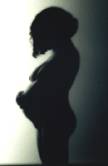
MONDAY, Feb. 8 (HealthDay News) — Older moms are more likely to have a child with autism than women who give birth at a younger age, new research shows.
Researchers from University of California, Davis, looked at records for the nearly 5 million births in California between 1990 and 1999, a decade in which autism incidence increased 600 percent statewide.
A woman’s risk of having a child diagnosed with autism rose by 18 percent for each five-year increment in her age, according to the study. That means that a woman who gave birth at age 40 or older had a more than 50 percent greater chance of having a child with autism than a woman who gave birth between 25 and 29, and a 77 percent greater chance of having an autistic child than a woman who gave birth before the age of 25.
While previous research has shown that older dads are more likely to have a child with autism, this study found no such link between autism and paternal age, with one exception — older men who had children with much younger women.
Men over 40 who had a child with a woman under 30 had a nearly 60 percent increased risk of having a child diagnosed with autism compared to men aged 25 to 29 who fathered a child with a young woman.
Among mothers over 30, the increased risk associated with having a baby with a man older than 40 dissipated, according to the study in the Feb. 8 online issue of the journal Autism Research.
In California, women having babies over age 40 increased by 300 percent between 1982 and 2004, the researchers noted. Still, they stressed that the rise in women over 40 having babies probably accounted for less than 5 percent of the statewide surge in autism cases noted in 1990s.
“Advancing maternal age is contributing only a very small proportion of the increase in autism cases,” said study author Janie Shelton, a UC Davis doctoral student.
Geraldine Dawson, chief science officer for Autism Speaks, praised researchers for using such a large database to uncover the impact each parent’s age can have on autism risk. But she also urged older mothers not to worry unnecessarily.
“We need to look at this finding in context,” Dawson said. “This study is important, but we are not going to find one factor that can explain this dramatic increase in the prevalence of autism. We are going to find multiple factors, and advanced maternal age appears to be one of them.”
The new research contradicts an earlier study out of Israel that found the children of men over age 40 were at higher risk of autism. In that study, fathers over 40 were six times more likely than fathers under 30 to have a child with autism.
But subsequent studies did not confirm those findings. The Israeli study included only four women over age 40 whose children had autism — too small for an accurate analysis, Shelton said. The new California study included more than 12,000 cases of autism, and 501 women who gave birth over 40 and whose children were diagnosed with autism.
Researchers do not know why their study found that children with an older father but relatively young mother were more apt to develop autism, but they suspect it’s more than a statistical blip. “We feel it’s indicative of some underlying biological process,” Shelton said.
Mothers under age 30 have only a minimal age-related risk of having a child with autism, Shelton noted. It’s possible that the impact of the father’s age is more pronounced when dad is older and mom is much younger, whereas the risk conferred by older mothers “drowns out” any age-linked risk from fathers.
Autism is a developmental disorder that causes problems with social and communications skills and repetitive or restrictive behaviors. Because the condition has a wide range of symptoms and degrees of severity, autism is now called autism spectrum disorders. About one in 110 children in the United States has such a disorder, according to the U.S. Centers for Disease Control and Prevention.
In this study, autism was defined as a diagnosis of full-syndrome autism at a California Regional Center, where children receive autism-related services.
The findings are not that surprising, given what’s known about advancing maternal age on other birth-related conditions, Dawson said. Previous research has shown that older moms are at higher risk of miscarriage or delivering low birth-weight babies, and of having babies with chromosomal aberrations such as Down syndrome and congenital anomalies.
“We’ve known for a long time that advanced parental age is associated with changes in the DNA, more chromosomal abnormalities and more birth complications,” Dawson said. “Still, overall the risk [for any one couple] is small.”
More information
Head to Autism Speaks for more on autism.

